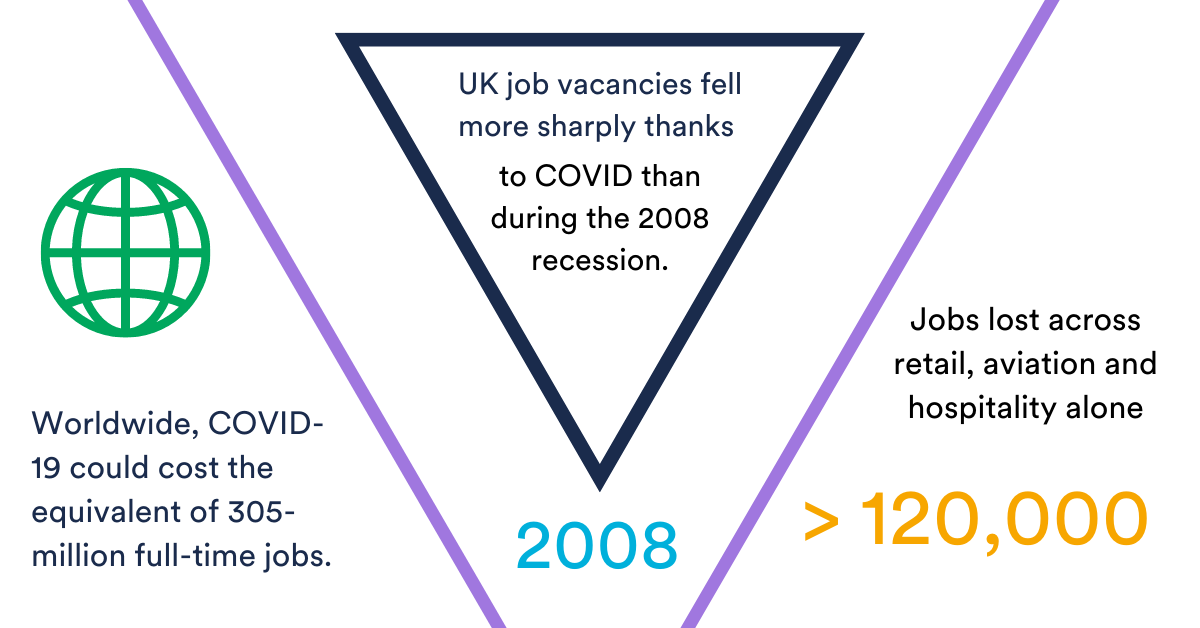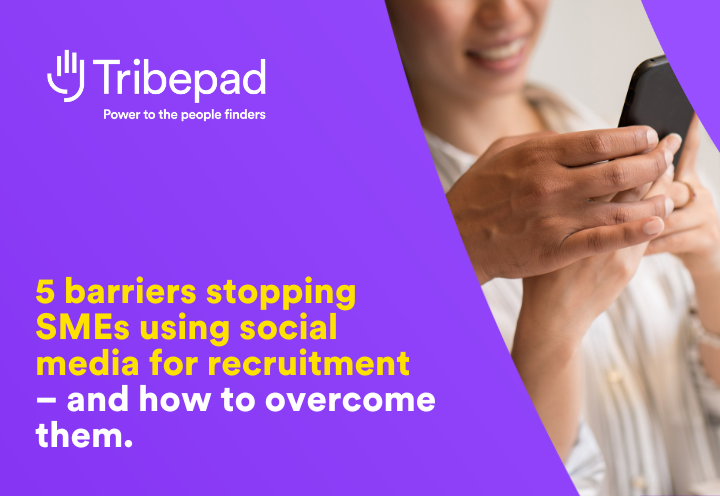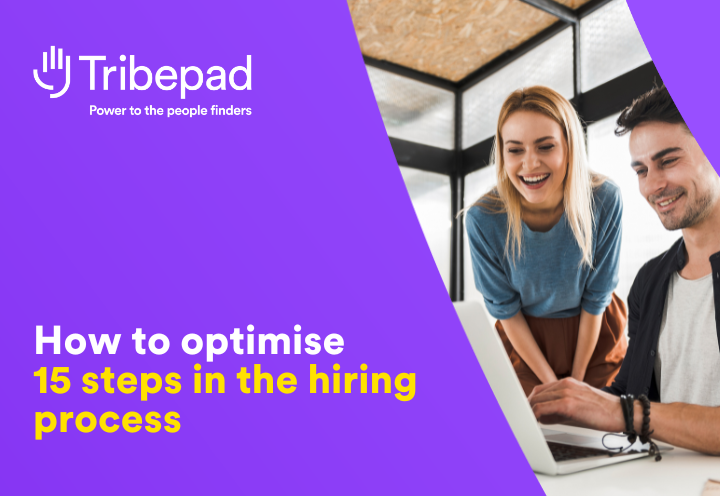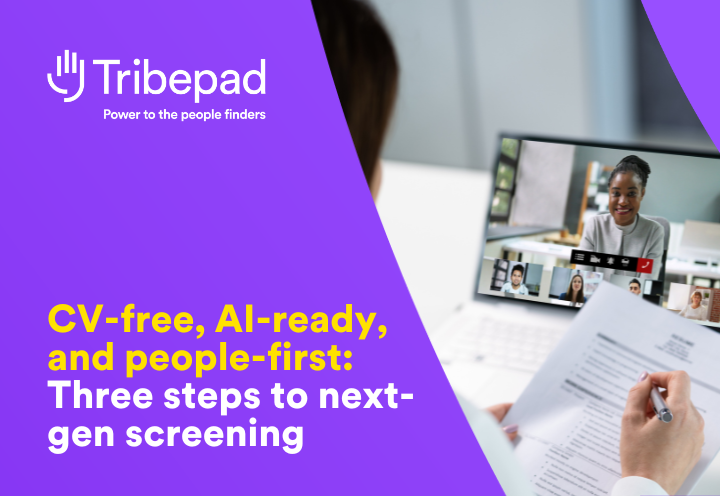It’s been a rocky year or so for recruiters. You’d be forgiven for wondering if we’d ever return to “normal”.
But as pandemic restrictions start to ease, there are positive signs we’re entering the next phase of COVID-19 recruitment: what the Fosway 9-Grid™ Talent Acquisition Report 2021 call the Great Rehire and Great Reboard.
As businesses start to rebuild, their workforce will either support growth or stall it. Depending on how you handle these six challenges:
- Employer branding
- Candidate experience
- Increasing application volume
- Diversity and inclusion
- Gig recruitment
- Onboarding
Because recovery doesn’t only rest on restoring workforce numbers. It also depends on restoring trust, protecting your brand and adapting to the new ways of working (and hiring) people want.
Keep reading to learn why this next phase of COVID-19 recruitment has intensified each of those challenges – and how to come out ahead.
It’s been a dismal picture until now

UK job vacancies fell more sharply thanks to COVID than during the 2008 recession.
More than 120,000 jobs were lost across retail, aviation and hospitality alone. And worldwide, COVID-19 could cost the equivalent of 305-million full-time jobs. UK unemployment hit a five-year high.
UK’s hardest hit sectors:
- Retail
- Aviation
- Hospitality
Our own COVID jobs data saw applications explode as new jobseekers surged onto the market. Meanwhile, the number of online job adverts fell to only 34% of the year before.
It’s been a dismal picture – but the end finally seems to be in sight.
Bouncing back – the Great Rehire and Reboard
With lockdown easing and travel restrictions set to follow, businesses that were previously forced into lay-offs are now racing to rehire. In some sectors the tables have completely turned, and recruiters now face talent shortages that could seriously hurt business recovery.
For example, the hospitality industry has seen one in ten workers leave the sector over the last year – many for good, either finding alternative employment or moving away from the UK.
Many businesses are already on the brink of collapse thanks to COVID – severe staff shortages could be the final straw.
And businesses that managed to retain staff on furlough face major challenges too. A year’s disruption and new COVID-secure ways of working means returning employees are little different from new hires. Helping them embed back into the business and get productive fast will be essential to rebuilding.
Or unhappy employees have a deluge of other employment options.
The Fosway 9-Grid Talent Acquisition Report 2021 calls it the Great Rehire and Great Reboard. And this “new hiring-normal” has major implications for recruiters and the talent technology you rely on.
Six major challenges for post-COVID recruitment
Fosway say organisations are “pivoting their investment in better recruitment technology”, with laser-focus on one goal: “protect employer brand and reduce time to productivity for the Great Rehire/Reboard”.
This next phase of COVID-19 recruitment is a positive one for businesses and the economy – but it intensifies some of your biggest challenges too.
The war for talent is back with a vengeance. As jobseekers, often underwhelmed by employers’ pandemic responses, start finding themselves overwhelmed with career options.
The recruitment teams that evolve and rehire fastest will come out on top.
Here’s what you’re facing.
1 – Employer branding
Years of talent shortages have meant employer brand has been becoming increasingly important for years. The pandemic has only magnified that truth – and not all businesses are emerging as winners.
Organisations that weren’t seen to treat their people fairly during the pandemic could face employer brand erosion that hurts recruitment for years yet.
For example, 77% of Gen-Z employees say they’ll consider how a business acted during the pandemic when choosing an employer.
Combatting potential reputation damage places new precedence on relationship-building and talent nurturing. Recruiters need technology that empowers a relationship-first approach, moving beyond transactional recruitment.
2 – Candidate experience
Increasing application volumes across many industries makes improving the non-hire candidate experience critical.
As Fosway say:
“Candidates that get constructive feedback and move to a talent pool are four times more likely to apply for future roles. How you create advocacy amongst candidates that don’t get the job might turn out to be a critical driver of your future success”
Recruiters need technology that makes delivering fast, empathetic candidate experiences simple. The best experiences raise the lowest common denominator, to treat everyone engaging with your brand with respect, dignity and compassion.
3 – High application volume
Fosway also talk about how these increased application volumes are “stress-testing platforms and processes like never before”. (For example, we helped one client successfully process one million job applications in three days at the start of the pandemic. Phew.)
Choosing recruitment tech that uses AI to augment human decision-making at speed and scale is now a major priority, if it wasn’t already. Platforms must dramatically accelerate recruiters’ screening processes, allowing them to rehire faster.
Not only to improve time-to-hire but to improve the candidate experience, which increasingly “is determined by transparent communication and fast decision-making – areas many corporates fail to grasp or deliver”.
Read more: Using rec-tech to manage soaring application volumes
4 – Diversity and inclusion
Today’s jobseekers, candidates and employees expect evidence of real progress against ED&I objectives – not the “mediocre lip service” Fosway say often characterised the past.
As organisations seek to rebuild from the pandemic, recruiters are under considerable pressure to step up their impact. Or risk driving potential talent away, and stalling the business’ ability to recover.
The right talent technology is instrumental to achieving fair, inclusive recruitment processes that empower diversity.
Robust diversity functionality – like anonymous applications, diversity talent pooling, diversity reporting and diversity recruitment campaign management – is becoming the benchmark.
Read more: How recruiters are using Tribepad to deliver on diversity
5 – ‘Gig’ recruitment
Fosway point out that most talent acquisition platforms “are designed for complex job approval and job posting workflows, not a simple process that works for gigs or projects in hours or days”.
That was a problem before COVID, since freelancers, contractors and gig workers are the fastest growing workforce segment. (PwC predict that only 9% of the workforce will be traditional full-time employees by 2030, for example).
It’s liable to become an even bigger problem now, as the pandemic encourages employees to reflect and potentially accelerate new ways of working. Recruiters with the technology to power efficient, cost-effective and relationship-centric contingent recruitment will find themselves a step ahead.
Download our guide to modernising contingent recruitment now.
6 – Onboarding
Onboarding has always been critical to new hires’ success. But the stakes are especially high right now, as business recovery hinges on accelerating back to full productivity.
And many organisations are hiring at greater scale than ever. In normal times, one or two new hires were disruptive enough, but now that disruption is typically happening en-masse.
Plus, you might either be rehiring people who’ve worked for you before or re-integrating staff who’ve been on furlough. Those employees aren’t a blank slate but that doesn’t mean they don’t need onboarding. Exactly the opposite – they might find adopting new processes in new teams especially hard.
A robust onboarding process can help everyone you hire now embed back into the business and get productive, fast.
The Great Leveller
Recruitment has very few radical game-changing moments. Evolution has always been fast but incremental. Logical. Steady.
This is different.
Post-COVID, the deck has been reshuffled – and even brands who thought they had pocket aces are starting a whole new game.
Business recovery will hinge on rebuilding our workforce strength – but it’s not just about numbers. It’ll also hinge on rebuilding trust, protecting your employer brand and adapting to the new ways of working people want.
The battle is just beginning – and right now, it’s all to play for.
Want to know exactly what jobseekers want in 2021, and how to get an edge in the new talent war? Download our 2021 research report on the Hybrid Hiring Era now.



